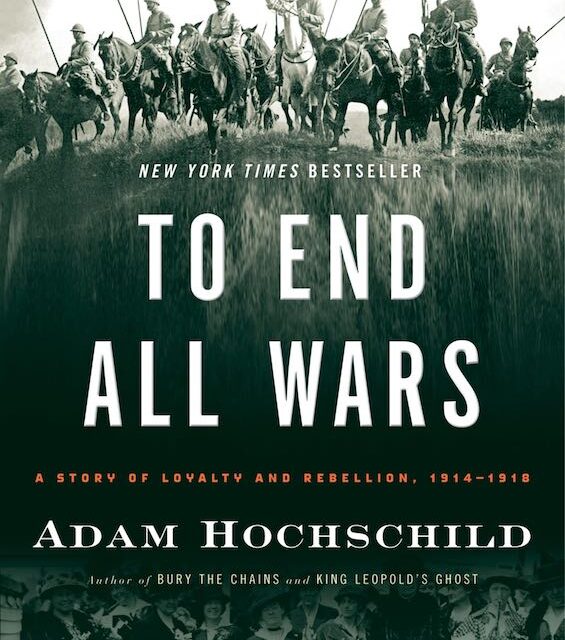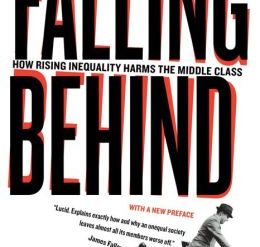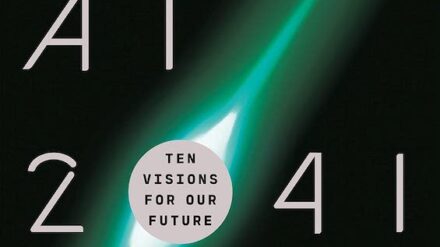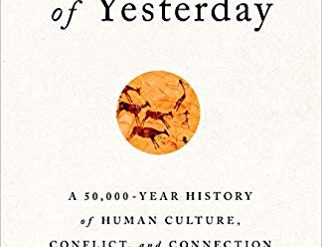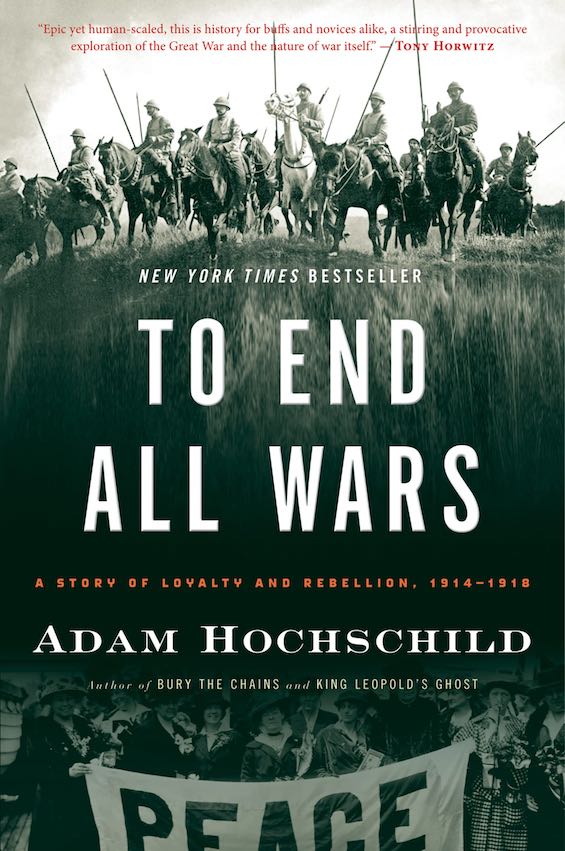
In reassessing World War I, Adam Hochschild explores the historical forces at work when the 19th Century so tragically encountered the 20th. In that first truly global conflict, the military traditions of the past collided with the realities of life in an industrial age, with top British commanders stubbornly defending the lance, the sword, and the horse in favor of the machine gun and ordering millions of men to certain death against impenetrable barriers of barbed wire.
“The prostitution of science for pure destruction”
Meanwhile, the social movements rooted in 19th Century experience grew up quickly in the hothouse of unlimited war. Armchair socialists morphed into ruthless and violent revolutionaries. And labor unions gained ground quickly as society at home came under unbearable strain through the deprivations imposed by the war.
As Hochschild notes, one of those who came to speak out against the way in its final months “was entirely right to see that the war had irrevocably unleashed ‘the prostitution of science for the purposes of pure destruction.'” That phrase could serve as an epitaph not just for the First World War but for the 20th Century as a whole.
To End All Wars: A Story of Loyalty and Rebellion, 1914-1918 by Adam Hochschild (2011) 501 pages ★★★★★
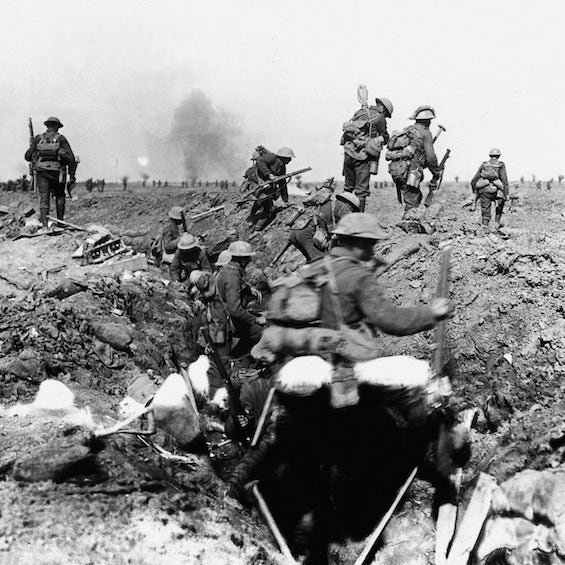
Exploring the lives of dissidents as well as the generals
To End All Wars (an ironic reference to Woodrow Wilson’s hyperbolic phrase) examines the “Great War” principally from the perspective of the leading players among the British. However, unlike so many other portrayals of this much-studied war, Hochschild’s story is not limited to that of the elite who led the war, nor of the front-line soldiers who served as cannon fodder in their millions, nor even of those who supported the war at home. In the practice he has pursued so well in previous books (Bury the Chains, King Leopold’s Ghost), Hochschild explores the lives of the dissidents as well, the courageous few who advocated socialism without boundaries or served as the century’s first conscientious objectors and their sympathizers.
A heartbreaking story told beautifully
This is a significant book, perhaps Adam Hochschild‘s greatest contribution to our understanding of the roots of modern society. In his cover review in today’s New York Times Book Review, Christopher Hitchens calls it a “moving and important book” and marvels over the depth and thoroughness of the research that underlies it. To End All Wars is also beautifully written, paced almost like a thriller and richly endowed with the intimate details of the lives of the all-too-real people who fought for—and against—the war.
Read this book, and you will have trouble forgetting Sir John French and Sir Douglas Haig—the first British field commander and his successor—whose pigheaded insistence on using yesterday’s tactics led to millions of deaths . . . or Charlotte Despard, the aristocratic radical feminist and socialist who somehow sustained her deep love for her brother, who commanded the British armies . . . or the hapless Wheelden family, loyally hiding out conscientious objectors, only to be jailed for long terms as an object lesson for the opposition . . . or Keir Hardie, the socialist MP; the Pankhurst family (mother and three daughters) . . . or a dozen others Hochschild lifts out of the obscurity of time to tell this heartbreaking story.
About the author
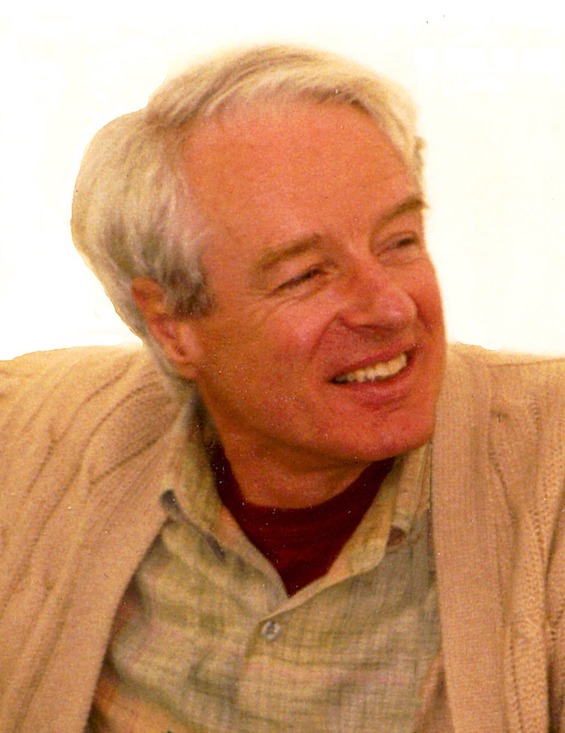
Adam Hochschild (1942-) is a Berkeley, California-based popular historian who declines to call himself an historian. He has won numerous awards for his ten historical studies published from 1990 to 2020 as well as a memoir and two books of essays. His best-known works include King Leopold’s Ghost (1998), about Belgian colonialism in the Congo, and Bury the Chains (2005), an account of the anti-slavery movement. Hochschild lectures at the School of Journalism at the University of California, Berkeley. He is married to the sociologist Arlie Russell Hochschild.
For related reading
For a more conventional (but still excellent) account of the Great War, see The First World War by John Keegan (They called it the Great War, and so it was).
I’ve also reviewed three other excellent books by Adam Hochschild:
- Spain in Our Hearts: Americans in the Spanish Civil War, 1936-1939 (The American role in the Spanish Civil War)
- Rebel Cinderella: From Rags to Riches to Radical, the Epic Journey of Rose Pastor Stokes (Early 20th-century America viewed through the life of one extraordinary woman)
- American Midnight: The Great War, a Violent Peace, and Democracy’s Forgotten Crisis (Repression, censorship, and official violence in the First Red Scare)
This is one of the many Good books by Berkeley authors. And you might care to check out Top 10 nonfiction books about politics for more good reading.
You may enjoy browsing through 20 top nonfiction books about history. If you enjoy reading history in fictional form, see 20 most enlightening historical novels.
And you can always find my most popular reviews, and the most recent ones, on the Home Page.

